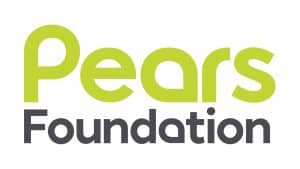Punitive school behaviour policies are causing harm to children and young people’s mental health and in some cases are at risk of contravening schools’ duties to equality and diversity, according to a new report by the Children and Young People’s Mental Health Coalition.
The Behaviour and Mental Health in Schools report is based on a year-long inquiry led by the Coalition into behaviour and mental health in schools. The inquiry asked young people, parents, carers and professionals their views on current approaches to behaviour management and mental health in schools and how they can be improved, via an online survey and evidence sessions.
The report finds that whilst it is important for schools to have clear expectations and boundaries in place, punitive approaches to behaviour management are harming children and young people’s mental health. Young people, parents, and professionals who took part in the inquiry reported that the use of behaviour management techniques such as removal rooms, exclusions, and fines and penalties for non-attendance are some of the most detrimental techniques used by schools.
When asked about the impact of some behaviour management techniques on their mental health, young people described feeling worthless and invisible, and reported increased feelings of anxiety, particularly in relation to attending school. Where children and young people had existing mental health problems or special educational needs and disabilities, punitive techniques exacerbated these difficulties.
A young person who took part in the research said: “It affects my mental health by putting the idea in my head that no-one sees my worth and I deserve to be in pain.”
A parent who took part in the research said: “A huge number of detentions led to a breakdown, my son withdrawing from school and eventually admission to a mental health unit. School only ever treated him as being naughty.”
Young people and parents told us that behaviour management techniques that ignore the root causes are not effective in improving behaviour in the long-term.
The Behaviour and Mental Health in Schools report also found that some groups of children and young people are disproportionately impacted by school behavioural policies. Children and young people with special educational needs and disabilities, those from racialised communities including Black and Gypsy, Roma and Traveller Communities, and young people from low-income backgrounds were some of the groups most impacted.
Some schools use blanket approaches to behaviour which fail to take into account, and accommodate, individual needs and disabilities. Such approaches risk being discriminatory and in contradiction to school duties under the Equality Act 2010.
The Children and Young People’s Mental Health Coalition is calling for a wholescale culture shift in how behaviour is viewed and responded to in schools. Problematic behaviour should not be viewed as something to be managed, but an opportunity to identify needs early and intervene. This should be accompanied by developing supportive and inclusive school environments through the implementation of whole school and college approaches to mental health and wellbeing.
Schools cannot do this alone, and the report calls for greater investment in specialist services to ensure that children, and young people, and their families can access timely support with their mental health.
Amy Whitelock Gibbs, Chair of the Children and Young People’s Mental Health Coalition, said: “Our year-long inquiry was set up in direct response to members’ concerns that too often, children and young people get punished for behaviour that is linked to their mental health, which can in turn cause further harm. Young people told the inquiry that they don’t feel listened to, and their needs are not considered when their behaviour is being discussed in school, while parents and carers described how punitive techniques were not only harmful, but also not effective in improving their child’s behaviour. Current approaches are simply not working for anyone.
“Schools are on the frontline of responding to rising mental health needs and widening inequalities, yet reduced school budgets and a lack of access to specialist services means that schools are often having to support pupils with very little resource to do so. What our findings demonstrate is that we need to prioritise building effective systems of support around schools and families, so no one is left without the support they need.”
Sir Norman Lamb, former Chair of the Children and Young People’s Mental Health Coalition, said: “Education plays an important role in children and young people’s mental health and wellbeing. But current approaches to behaviour management in schools are doing more harm than good. Our evidence suggests that punitive approaches remain commonplace in too many schools despite having harmful and lasting impacts on children and young people’s mental health. We heard consistently that problematic behaviour in school is often driven by unaddressed mental health problems and special educational needs and disabilities. While this may not be the case in all incidents of misbehaviour, we need a much more sophisticated and coordinated approach to identifying and supporting needs in schools in order to intervene early and prevent behaviour from worsening.”
Dr Mary Bousted, General Secretary of the National Education Union, said:
“The report highlights the result of government policies that have failed young people by insisting on a content-laden, over- prescriptive curriculum, an exam driven culture and an underfunded SEND support system. Many young people are being driven to a mental health crisis point and schools are expected to deal with the educational and psychological consequences with little or no access to specialist SEND and mental health professionals to enable early and continued support for children and young people.
The report sets out clear recommendations for government action to ease pressures on school staff and students and to replace an outdated, punitive approach to behaviour management with one that is fit for the twenty-first century.”
For press enquires for the Children and Young People’s Mental Health Coalition please contact Charlotte.Rainer@cypmhc.org.uk
Notes to editors:
- Full report is available from 00:01hrs Wednesday 7th June 2023 via this link: https://cypmhc.org.uk/publications/behaviour-and-mental-health-in-schools-report/
- The Behaviour and Mental Health in Schools inquiry aimed to explore the links between mental health and behaviour, how current school policies on behaviour affect young people and their families, and what schools can do to improve both behaviour and mental health.
- A total of 840 responses were received to the online survey: 111 young people, 495 parents and carers and 234 professionals responded. A total of five evidence sessions were held with representatives from education and the charity sector.
- The Coalition also established a young person’s advisory group and a parent-carer advisory group to support the development of the inquiry and to ensure their voices were placed at the centre of this work.
- Case studies from our advisory groups are available on request.
- The findings from the inquiry cover England only.
- The Children and Young People’s Mental Health Coalition (CYPMHC) represents the views of over 240 charities, academic institutions and professional bodies who come together to campaign for the better mental health of babies, children and young people. Read here for further information: http://cypmhc.org.uk/.





